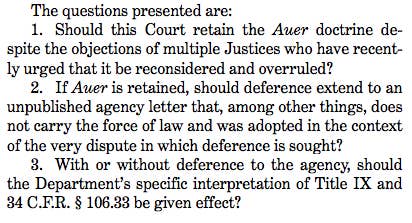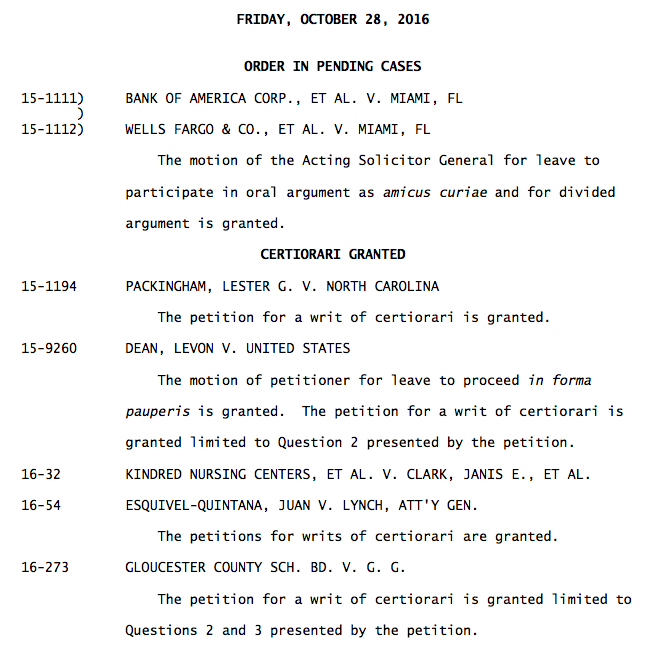
WASHINGTON — The Supreme Court will hear a major case involving the Obama administration's policies in support of transgender rights, the court announced on Friday.
Gloucester County School Board in Virginia asked the justices to hear the case, which was brought by Gavin Grimm, a transgender male student who is now a senior at the high school in the district.
The school district passed a policy limiting restroom use to students' biological sex, and Grimm — backed by the ACLU — sued. Although he initially lost at the district court, the 4th Circuit Court of Appeals found in Grimm's favor.
The question in Grimm's case raises the question whether — as the ACLU and the Obama administration assert — the school's policy violates Title IX of the Education Amendments of 1972. The Obama administration has interpreted the sex discrimination ban in Title IX to include a ban on anti-transgender discrimination.
"We are grateful that the Supreme Court has granted the School Board’s petition in this difficult case," the school board said in a statement. "The Board looks forward to explaining to the Court that its restroom and locker room policy carefully balances the interests of all students and parents in the Gloucester County school system."
Grimm's ACLU attorneys called it "disappointing" that the court would allow the policy to remain in place while Grimm is finishing out his time in the school district.
"These sorts of discriminatory policies stigmatize and isolate transgender students like Gavin just because of who they are," ACLU attorney Joshua Block said in a statement. "We look forward to presenting Gavin's case to the Supreme Court as the next step in the fight to ensure fairness and equality for trans people across the country."
The 4th Circuit ruled narrowly in Grimm's favor, holding that the Obama administration’s guidance supporting transgender coverage was permitted under the regulations implementing Title IX because those regulations were ambiguous on the point. Because they are ambiguous, the Obama administration could adopt the position backing transgender inclusion.
That reasoning is referred to by a prior Supreme Court case name, Auer deference.
The school board asked for the court to reconsider Auer deference in total, as well as determining whether the administration's position should be allowed under the Auer deference standard — the narrow, 4th Circuit ruling — or, more broadly, on whether the interpretation is correct — in other words, that sex discrimination includes anti-transgender discrimination.
The questions the school board asked the justices to hear:

The Supreme Court on Friday announced that it would not be reconsidering the Auer deference standard, but would only be considering the second and third questions raised by the case.
Over the summer, the Supreme Court issued a stay of the lower courts' actions, keeping the policy in place while the justices decided whether to take the case. The decision to take the case keeps that stay in place until the case is resolved — a fact referenced by Grimm and his lawyers on Friday.
"While I’m disappointed that I will have to spend my final school year being singled out and treated differently from every other guy, I will do everything I can to make sure that other transgender students don’t have to go through the same experience," Grimm said in a statement.
Should the case result in a tie, the lower court ruling in Grimm's favor would stand — but it would set no national precedent for other districts or for the administration's pro-transgender interpretation of sex discrimination bans.
Read Friday's orders from the Supreme Court:

